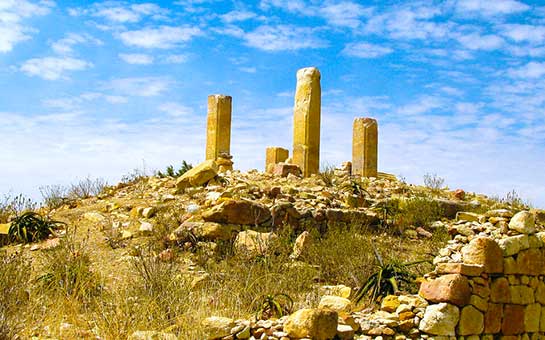Eritrea is among the least-visited countries in Africa. It is a tad surprising, considering the fact that the country has a lot to offer by way of scenic beauty, friendly people, and a lot of diversity.
Where is Eritrea? This small nation is on the Red Sea coast and is rich in flora, fauna, and scenic splendor. Though today tourism accounts for less than 1% of the GDP, the government is looking at ways and means to increase tourist traffic. But you have taken the right decision to visit Eritrea now. Enjoy the locales before they start teeming with tourists. While you’re packing for your trip to Eritrea, make sure to buy travel medical insurance as a safeguard against any unexpected accidents, injuries, or illnesses.
Eritrea Travel Medical Insurance for International Travelers – FAQs
Medical facilities beyond the capital, Asmara, are basic to non-existent in Eritrea, and private healthcare, wherever available, is expensive. So, it’s best that you avail of travel medical insurance—and, specifically, do obtain Eritrea coronavirus insurance.
Do I need travel medical insurance for Eritrea?
You don’t mandatorily need travel medical insurance for Eritrea. But it would be worthwhile to have this insurance, as it could save you from spending money on medical care in the event of an injury or illness.
Why buy travel medical insurance for Eritrea?
An aborted vacation due to an illness or accident causes a lot of heartache. And while traveling in Eritrea, there are reasons that can make such things happen. So, it’s advisable that you buy Eritrea travel medical insurance before you go for the trip.
Things to Do for Travelers in Eritrea
Sparkling blue seas, shining white beaches, archaeological ruins, mountains, exotic cultures – Eritrea has it all and more. There’s something for every traveler out here, and you will have your hands full while exploring the country. Some of the must-see sites here are:
- Senafe: Located towards southern Eritrea, this place is renowned for the ancient Metera ruins. The locals call it Balaw Calaw, King Kaleb’s remains, or the Gate of Axum. Check out the millennia-old obelisk here and the huge stone block. For those of you seeking some adventure, climb up to the top of the rocks. It’s arduous, but the view from the top is worth it.
- Dahlak Marine National Park: This ecosystem still retains much of its unspoiled beauty. Waters surround this park located in the Dahlak Archipelago. There are more than 300 species of fish out here, along with dolphins, turtles, etc. If you are a diving enthusiast, then this is the place for you to see. Check out the excellent underwater pumice stone formations and the many shipwrecks.
- Qohaito: This is a treat for archaeology enthusiasts. Eritrea abounds in such sites, many of which are yet to be fully excavated. The Qohaito ruins lie towards the southern part of Asmara, the Eritrean capital. Check out the ruins of the kingdom of King Saba dating back to more than a thousand years, as well as the ancient port of Adulis.
- Filfil: This “Green Belt” serves as the lungs of Eritrea. This rain forest is home to a large number of mammals like the hamadryas baboons, gazelles, warthogs, and leopards. You would get to see many rare avian species here, as well. The nearby town of Filfil is a plantation town.
- Dankalia: This one’s only for the brave hearts. Among the lowest points on the earth (about 400 feet or about 120 meters below sea level), it is also among the hottest places around the globe. Sub-surface lava oozes to the surface and the landscape is always changing. There are volcanic cones, valleys, and small mountains. Should you be able to make this trip, it would be a once-in-a-lifetime experience.
Travel Risks for International Travelers in Eritrea
Eritrea is among the safest countries for international Travelers in Africa. The locals are welcoming and there is an easy camaraderie that you can share with them, even at the first meeting. In the cities, most of the people are conversant in English, so communication isn’t a barrier, either. The tour guides are helpful and knowledgeable.
However, it doesn’t hurt to stay cautious. There are some basic precautions that you need to take.
- Don’t discuss politics or matters regarding the country’s government with any local, even if they raise the topic. One thing might lead to another, and you could find yourself in trouble.
- International cards don’t work in Eritrean ATMs, so keep sufficient cash with you. But don’t carry all of your cash with you wherever you go, either. The same goes for other valuables.
- Avoid traveling to deserted locations at night or when you are alone.
- If you decide to drive yourself to explore the countryside, remember that the road conditions are poor away from the cities. Towards the border areas, there are the risks of landmines, too, so don’t travel without a guide.
- Move away from any place where you see a demonstration or a public protest. These can turn violent on short notice.
Before You Travel to Eritrea - Do This
Maintain backups of your travel documents.
Don’t miss out on travel advisories.

